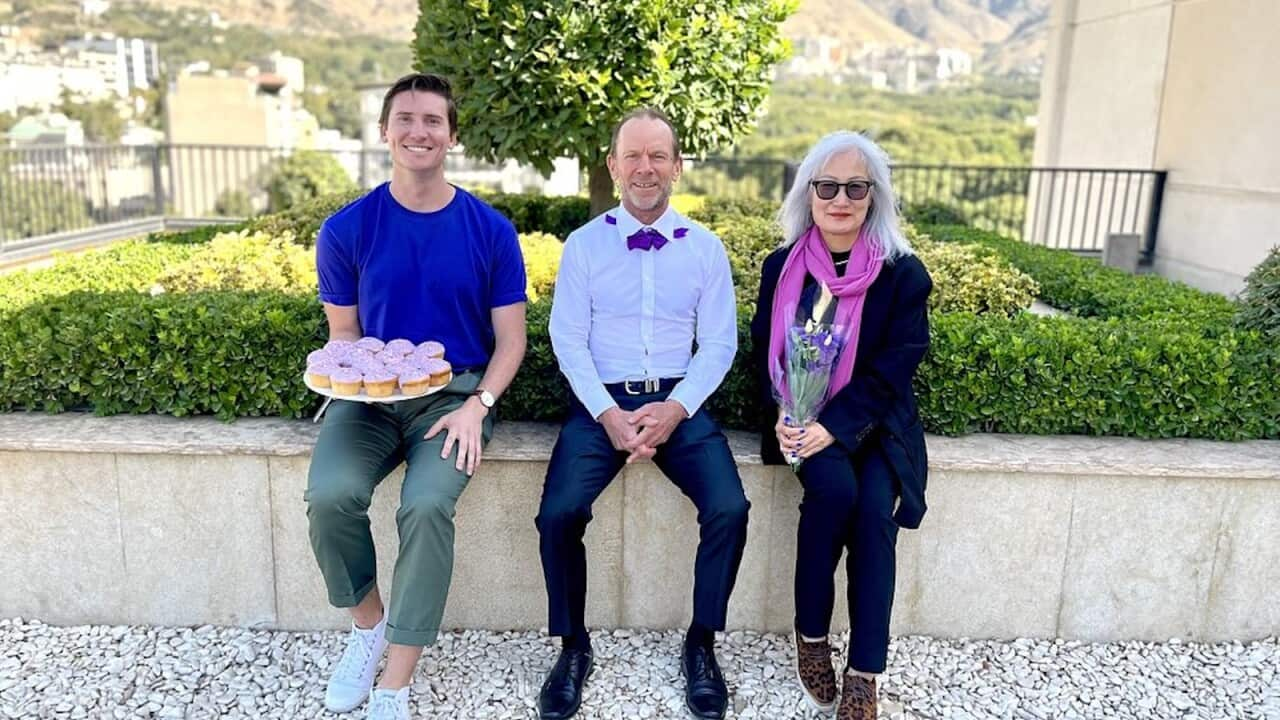Iran’s foreign ministry said it had summoned Australia’s ambassador in Tehran to “strongly condemn” a social media message posted by the embassy supporting LGBTIQ+ rights, in a move that has Canberra “very concerned”.
The embassy used an Instagram post on Sunday marking Wear it Purple Day to call for a “brighter, more inclusive future”.
It included photos from a celebration at the embassy with Ian McConville, Australia’s ambassador to Iran.
Wear It Purple Day started in 2010, and is celebrated on the last Friday of August each year. On the day, members of the LGBTIQ+ community and allies in Australia wear purple to show support for young LGBTIQ+ Australians.
“Today and every day, we’re dedicated to creating a supportive environment, where everyone, especially LGBTQIA+ youth, can feel proud to be themselves,” the Australian mission wrote.
Iran’s ILNA news agency quoted McConville as saying the post was not intended to insult the Iranian people and their values, and the Islamic Republic was not mentioned in it.
But Iran’s foreign ministry said in a statement on Tuesday: “Following the publication of offensive content contrary to Iranian and Muslim customs and culture, the Australian ambassador has been summoned to Tehran.
“The Ministry of Foreign Affairs has strongly condemned the action of the Australian embassy in publishing this content.”
The post remains on the embassy’s Instagram account.
Labor minister Murray Watt was critical of Iran’s decision to summon McConville over the post.
“We’re very proud about the fact that our embassies promote Australian values internationally,” Watt said. “And I’m very concerned to see an overseas government seemingly take action against an Australian Embassy that is upholding Australian values.”
Same-sex relationships have been a crime in Iran since the Islamic Republic was established in 1979, and in some circumstances, gay sex is punishable by the death penalty.
With additional reporting by Reuters







